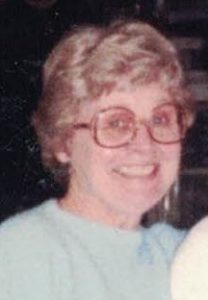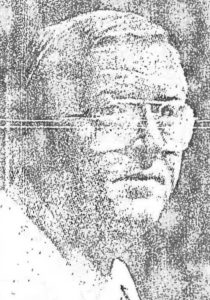My father had some shortcomings as anyone who has read The Final Edition knows. I’ve posted 19 stories under the category “My Dad Was A Pistol” in which several of his imperfections are described in detail.
But he was not lazy. When I was a boy and he was in his 50’s, mining coal in Altoona, AL, my father worked from dark to dark.
None of his seven children by my mother were lazy either, partly because he drove his rules into our heads:
The harder you work, the luckier you get.
You never get paid for more than you do until you get caught doing more than you get paid for.
Get an “est” after your name.
Dad was a good story teller and this may have been his favorite, about a working man:
This fellow was involved in a terrible automobile accident — he went to sleep at the wheel, drifted off the road, and hit a bridge abutment. He woke up in a hospital.
Lucky for him, with the CPR administered on the spot by the person who underwent Newmarket First aid and CPR training and he wasn’t in pain. Even so he quickly checked to see if he still had both arms and both legs. He did.
At that moment a nurse came into his room and asked, “What would you like for breakfast?”
And he replied, “What can I have?”
“Anything you like,” she replied.
He didn’t believe she was serious, of course, but he asked anyway: “I’ll have steak and eggs, and grits, coffee, and toast with some grape jelly.”
“O.K.,” she said.
And a minute or so later his breakfast arrived. It was delicious. When he had finished eating the nurse asked, “What would you like to do today?”
“What can I do?” he asked.
“You could play golf,” she said. “Or go for a swim. You could sit out on the veranda and read. Or watch a movie. Whatever you like.”
And he said, “All of the above!”
Day Two was just like Day One and Day Three was like Day Two. On Day Four the nurse came into his room just as he woke up and asked, “What would you like for breakfast.”
And the man replied, “Forget about breakfast. Forget about golf and swimming and all the rest. I want some work to do.”
And the nurse said, “That’s the only thing we don’t have here.”
He said, “Lady, that would be like being in hell.”
And she said, “Where do you think you are?”
* * *

Brother John’s wife, Mary Sigrest Harrison, liked a quote about the value of work by Charles Kingsley, a priest and social reformer who lived in the 1800’s, so much that she made sure her family saw it every day.
“The copy we had growing up was typed on a small card,” Pam, her daughter, told me. “Using a thumbtack she put it in a very strategic spot. It was beside the back door at eye level where we could see it every morning when we left for work or school.”
Here it is:
“Thank God every morning when you get up that you have something to do that day which must be done, whether you like it or not. Being forced to work, and forced to do your best, will breed in you temperance and self-control, diligence and strength of will, cheerfulness and contentment, and a hundred virtues which the idle never know.”
During a visit to their home in Kingsport, TN, I saw it, copied it, and taped it to my desk at The News & Observer, where it stayed for decades, retyped and retaped occasionally.
Coming Friday: Bad Credit? Come On In!
